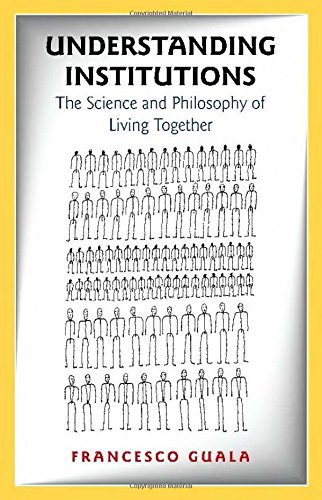

Most ebook files are in PDF format, so you can easily read them using various software such as Foxit Reader or directly on the Google Chrome browser.
Some ebook files are released by publishers in other formats such as .awz, .mobi, .epub, .fb2, etc. You may need to install specific software to read these formats on mobile/PC, such as Calibre.
Please read the tutorial at this link. https://ebooknice.com/page/post?id=faq
We offer FREE conversion to the popular formats you request; however, this may take some time. Therefore, right after payment, please email us, and we will try to provide the service as quickly as possible.
For some exceptional file formats or broken links (if any), please refrain from opening any disputes. Instead, email us first, and we will try to assist within a maximum of 6 hours.
EbookNice Team

Status:
Available0.0
0 reviewsUnderstanding Institutions proposes a new unified theory of social institutions that combines the best insights of philosophers and social scientists who have written on this topic. Francesco Guala presents a theory that combines the features of three influential views of institutions: as equilibria of strategic games, as regulative rules, and as constitutive rules.
Guala explains key institutions like money, private property, and marriage, and develops a much-needed unification of equilibrium- and rules-based approaches. Although he uses game theory concepts, the theory is presented in a simple, clear style that is accessible to a wide audience of scholars working in different fields. Outlining and discussing various implications of the unified theory, Guala addresses venerable issues such as reflexivity, realism, Verstehen, and fallibilism in the social sciences. He also critically analyses the theory of "looping effects" and "interactive kinds" defended by Ian Hacking, and asks whether it is possible to draw a demarcation between social and natural science using the criteria of causal and ontological dependence. Focusing on current debates about the definition of marriage, Guala shows how these abstract philosophical issues have important practical and political consequences.
Moving beyond specific cases to general models and principles, Understanding Institutions offers new perspectives on what institutions are, how they work, and what they can do for us.